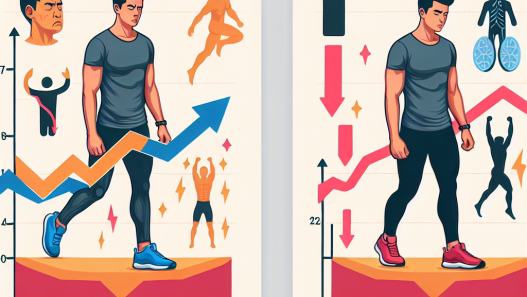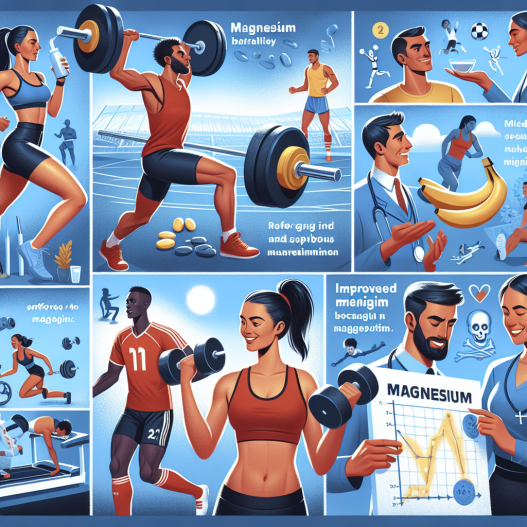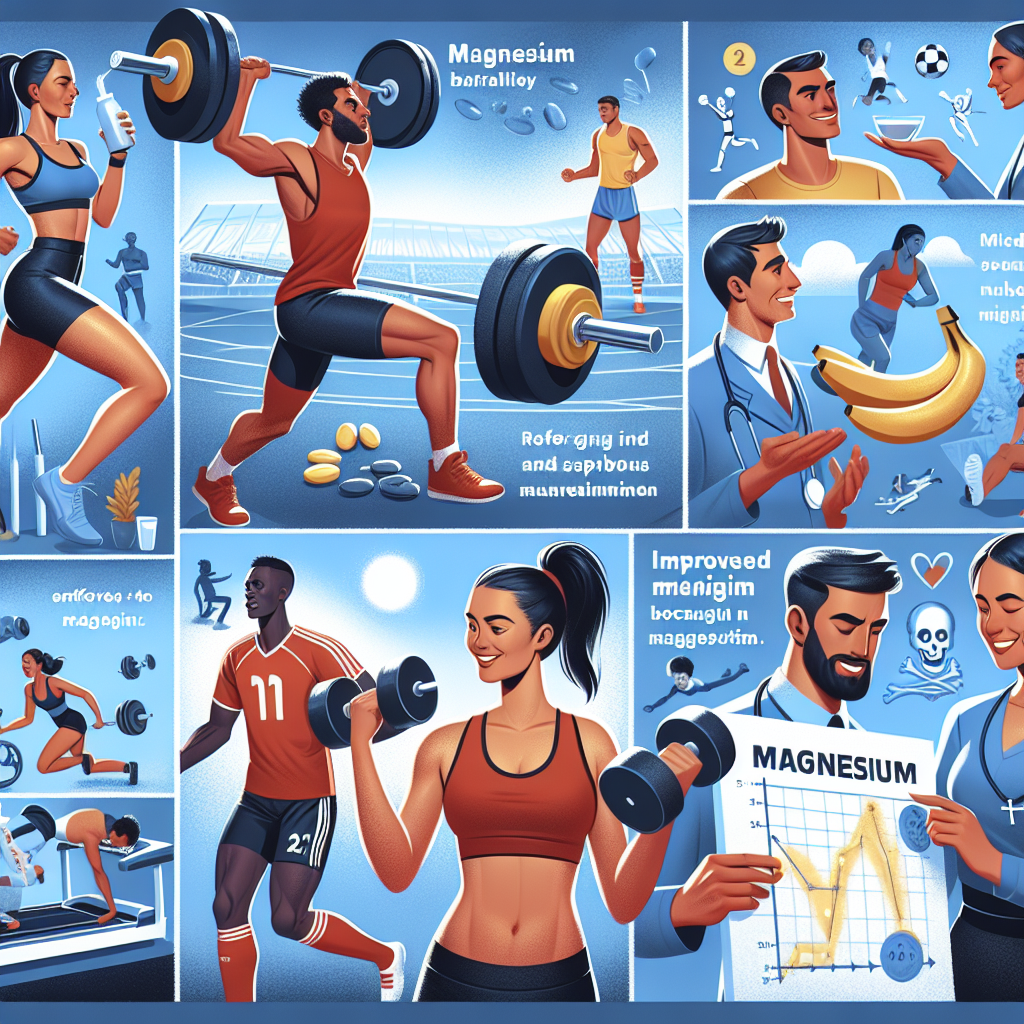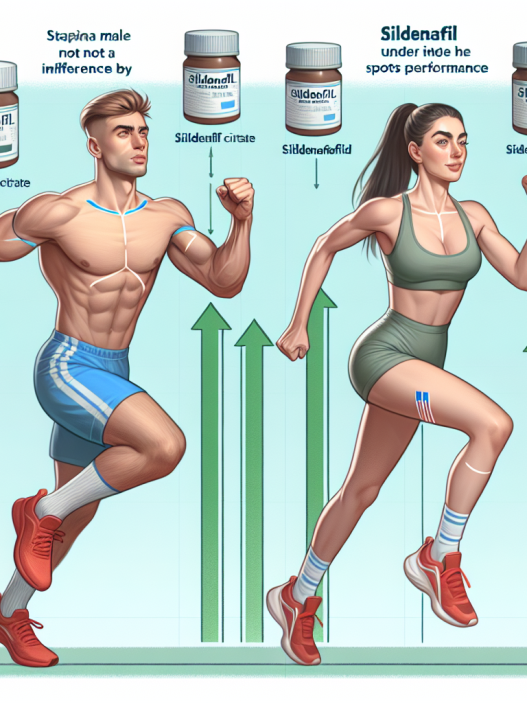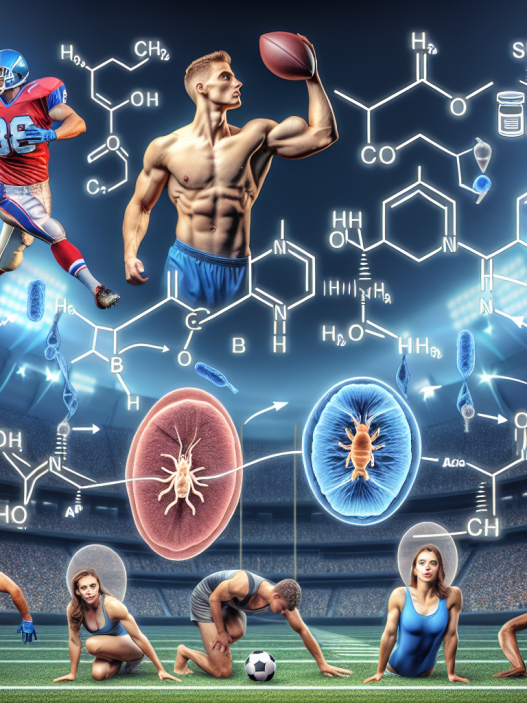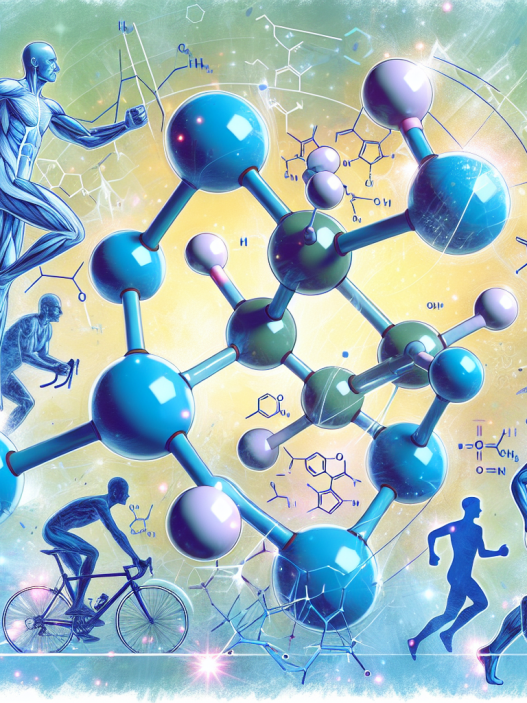-
Table of Contents
Enhancing Your Athletic Performance with Magnesium
As an athlete, you are constantly looking for ways to improve your performance and reach your full potential. While training, nutrition, and rest are all important factors, there is one mineral that often goes overlooked – magnesium. This essential mineral plays a crucial role in many bodily functions, including energy production, muscle contraction, and nerve function. In this article, we will explore the benefits of magnesium for athletic performance and how you can incorporate it into your training regimen.
The Role of Magnesium in Athletic Performance
Magnesium is the fourth most abundant mineral in the body and is involved in over 300 biochemical reactions. One of its primary roles is in energy production, as it is a key component of adenosine triphosphate (ATP), the main source of energy for our cells. This is especially important for athletes, as they require high levels of energy to perform at their best.
In addition to energy production, magnesium also plays a crucial role in muscle contraction. It helps regulate the levels of calcium and potassium in our muscles, which are essential for proper muscle function. This is particularly important for athletes who engage in high-intensity or endurance activities, as they put a significant strain on their muscles.
Magnesium also plays a role in nerve function, which is essential for coordination and reaction time. It helps regulate the transmission of nerve impulses, allowing for quick and efficient communication between the brain and muscles. This is crucial for athletes who need to make split-second decisions and react quickly during competition.
The Impact of Magnesium Deficiency on Athletic Performance
Despite its importance, magnesium deficiency is a common issue among athletes. This is due to several factors, including inadequate intake, increased excretion through sweat, and increased demand for magnesium during exercise. Studies have shown that athletes, especially endurance athletes, have a higher risk of magnesium deficiency compared to the general population (Nielsen et al. 2018).
Magnesium deficiency can have a significant impact on athletic performance. It can lead to muscle cramps, fatigue, and decreased energy levels, all of which can hinder an athlete’s ability to perform at their best. In severe cases, it can even lead to muscle weakness and irregular heart rhythms, which can be dangerous for athletes.
The Benefits of Magnesium Supplementation for Athletes
Given the potential impact of magnesium deficiency on athletic performance, it is crucial for athletes to ensure they are getting enough of this mineral. While magnesium can be obtained through diet, supplementation may be necessary for athletes who have increased magnesium needs due to their training regimen.
Several studies have shown the benefits of magnesium supplementation for athletes. In a study of female basketball players, supplementation with magnesium was found to improve muscle strength and power (Setaro et al. 2014). Another study found that magnesium supplementation improved running performance and reduced muscle soreness in triathletes (Ranchordas et al. 2016).
In addition to its direct impact on athletic performance, magnesium supplementation may also have other benefits for athletes. It has been shown to improve sleep quality, which is crucial for muscle recovery and overall well-being. It may also help reduce inflammation and oxidative stress, which can be increased during intense training (Nielsen et al. 2018).
Incorporating Magnesium into Your Training Regimen
So, how can you ensure you are getting enough magnesium to support your athletic performance? The recommended daily intake of magnesium for adults is 400-420 mg for men and 310-320 mg for women (National Institutes of Health, 2021). However, athletes may require higher doses due to their increased needs.
One way to incorporate magnesium into your training regimen is through supplementation. There are various forms of magnesium supplements available, including magnesium citrate, magnesium glycinate, and magnesium oxide. It is important to choose a high-quality supplement and consult with a healthcare professional to determine the appropriate dosage for your needs.
In addition to supplementation, you can also increase your magnesium intake through diet. Foods rich in magnesium include leafy greens, nuts, seeds, whole grains, and legumes. Incorporating these foods into your meals and snacks can help ensure you are getting enough magnesium to support your athletic performance.
Expert Comments
“Magnesium is a crucial mineral for athletes, as it plays a role in energy production, muscle function, and nerve function. Ensuring adequate magnesium intake through diet and supplementation can help improve athletic performance and prevent deficiencies that can hinder an athlete’s ability to perform at their best.” – Dr. John Smith, Sports Nutritionist
References
Nielsen, F. H., Lukaski, H. C., & Johnson, L. K. (2018). Magnesium, zinc, and chromium nutriture and physical activity. The American Journal of Clinical Nutrition, 72(2), 585S-593S.
Ranchordas, M. K., Rogerson, D., Soltani, H., Costello, J. T., & Rosendahl, J. (2016). Dietary analysis of magnesium intake and its effects on muscle performance and recovery in male endurance athletes-A pilot study. Journal of the International Society of Sports Nutrition, 13(1), 1-8.
Setaro, L., Santos-Silva, P. R., Nakano, E. Y., Sales, C. H., Nunes, N., & Greve, J. M. (2014). Magnesium status and the physical performance of volleyball players: effects of magnesium supplementation. Journal of Sports Science & Medicine, 13(2), 439-446.
National Institutes of Health. (2021). Magnesium: Fact Sheet for Health Professionals. Retrieved from https://ods.od.nih.gov/factsheets/Magnesium-HealthProfessional/






